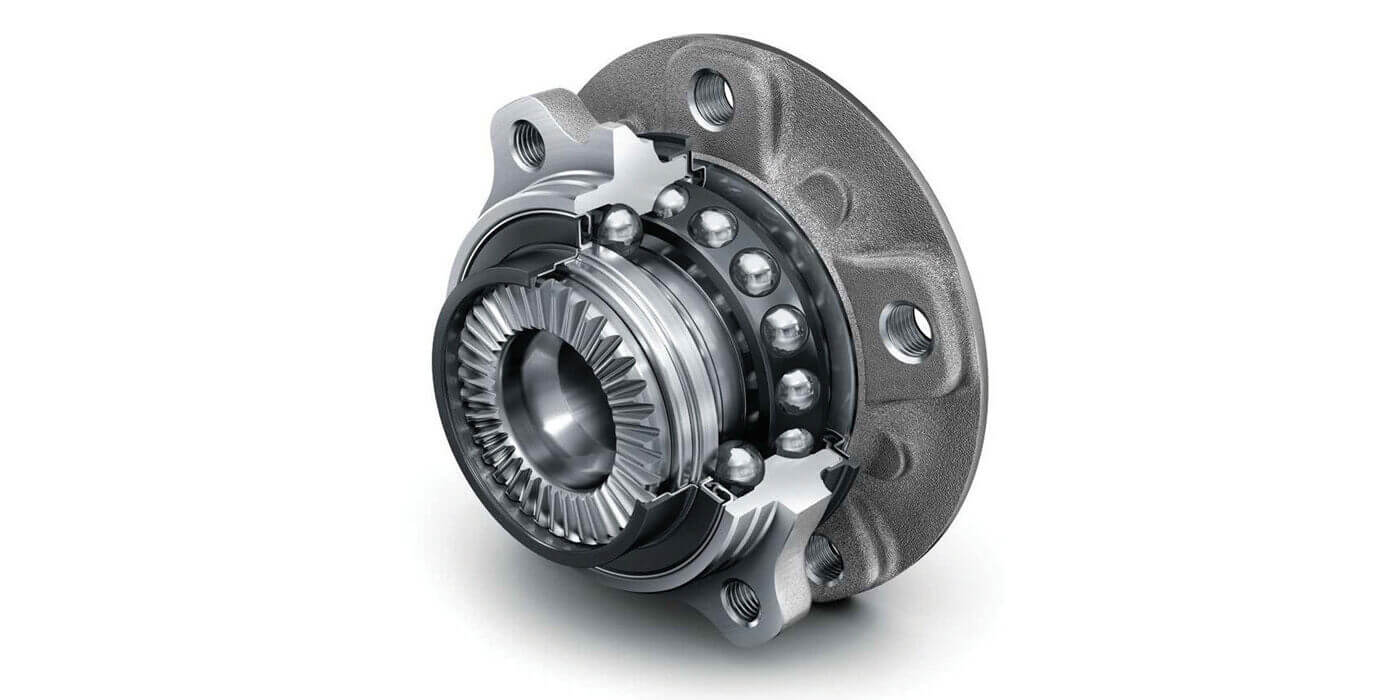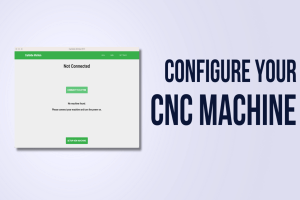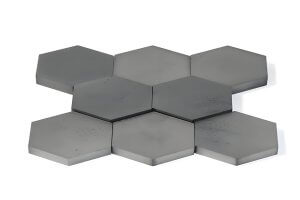Introduction
Wheel bearings are critical components in vehicles, ensuring that the wheels rotate smoothly and can support the weight of the vehicle. These bearings are essential for providing stability, reducing friction, and enabling efficient vehicle operation. Standard wheel bearings might not always meet the specific requirements of high-performance or specialized applications, such as racing, heavy machinery, or custom automotive builds. In such cases, custom wheel bearings designed to precise specifications become necessary.
CNC (Computer Numerical Control) technology has revolutionized the manufacturing of custom wheel bearings. CNC machining allows for precise, repeatable, and efficient production, ensuring that each bearing meets exact specifications. This technology offers flexibility in material selection, design adjustments, and rapid prototyping, making it ideal for developing wheel bearings that fit unique applications and performance requirements.
This article explores how CNC technology is applied to custom wheel bearing manufacturing, detailing the types of bearings available, the benefits of CNC machining, and how it achieves high-precision results. Whether you are in the automotive industry or working with heavy machinery, understanding the value of CNC technology in wheel bearing customization is crucial for optimizing performance.
Common Types and Applications of Wheel Bearings
Wheel bearings come in various types, each designed for specific applications and vehicle needs. Understanding these types helps in choosing the right bearing for customization:
| Type of Wheel Bearing | Description | Applications |
|---|---|---|
| Tapered Roller Bearings | Bearings with conical rollers that handle both axial and radial loads. | Trucks, trailers, and heavy-duty vehicles. |
| Double-Row Ball Bearings | Compact bearings with two rows of balls for higher load capacity. | Passenger cars and light-duty vehicles. |
| Angular Contact Ball Bearings | Designed for high-speed applications with greater precision. | Racing cars, motorcycles, and high-performance vehicles. |
| Hub Unit Bearings | Integrated assemblies that combine bearings, hub, and sensors. | Modern vehicles with ABS systems. |
| Sealed Bearings | Bearings with built-in seals to protect against contaminants. | Off-road vehicles and machinery. |
Applications of Different Wheel Bearings
- Tapered Roller Bearings:
- These bearings are ideal for trucks, trailers, and heavy-duty vehicles that require support for both radial and axial loads. Their robust design makes them suitable for high-stress applications where durability is crucial.
- Double-Row Ball Bearings:
- These compact bearings are often used in passenger cars, as they offer high load capacity in a small space. CNC machining allows precise manufacturing to fit various models and performance levels.
- Angular Contact Ball Bearings:
- For racing cars and motorcycles, these bearings provide high precision and speed capability. CNC machining ensures these bearings meet the tight tolerances required for high-performance applications.
- Hub Unit Bearings:
- Common in modern vehicles, these bearings include sensors for ABS (anti-lock braking systems) and other functions. CNC technology enables the integration of complex features in these bearings, ensuring precise fitment and reliable performance.
- Sealed Bearings:
- Used in off-road vehicles and heavy machinery, sealed bearings protect against dirt and contaminants, extending the lifespan of the bearing. Custom sealed bearings can be manufactured using CNC technology to match specific requirements.
Understanding the different types of wheel bearings and their applications helps determine the appropriate type for customization. By using CNC technology, manufacturers can ensure that each bearing type is produced to meet exact specifications, enhancing the performance and reliability of vehicles.
Why Choose CNC Machining for Custom Wheel Bearings?
CNC machining offers several advantages for the production of custom wheel bearings, making it the preferred choice for precision manufacturing:
- Precision and Accuracy:
- CNC machines are programmed using CAD (Computer-Aided Design) models, which allow for highly accurate machining. This ensures that wheel bearings are manufactured to precise dimensions, maintaining consistent quality.
- Flexibility:
- CNC machining offers the flexibility needed for custom orders, whether it’s adjusting dimensions, changing materials, or modifying designs. This adaptability is particularly valuable in developing wheel bearings for specialized applications, such as racing or heavy machinery.
- Efficiency:
- Once a CNC machine is programmed, it can run autonomously, reducing labor costs and increasing production speed. This efficiency is especially beneficial for small batch production and prototyping, where quick turnaround times are critical.
Comparison Between CNC and Traditional Manufacturing Methods
| Method | Advantages | Disadvantages |
|---|---|---|
| CNC Machining | High precision, flexible designs, quick adjustments | Higher initial setup costs |
| Traditional Casting | Cost-effective for large batches, lower material waste | Limited design flexibility, requires new molds for each design change |
| Forging and Manual Machining | Suitable for heavy-duty applications, high strength | Less precision and longer production time |
CNC machining surpasses traditional methods, especially for custom wheel bearings that require small to medium-sized batches or highly precise specifications. While traditional methods may be effective for mass production, they lack the flexibility and speed CNC technology provides.
How CNC Achieves High-Precision Wheel Bearing Machining
CNC technology involves several processes to ensure the high precision needed for wheel bearing manufacturing:
1.Turning:
- CNC lathes are used to turn the inner and outer races of the bearing, ensuring they are perfectly round and to the exact diameter needed.
2.Drilling and Boring:
- CNC machines drill and bore holes for mounting and fitment with precise alignment, crucial for ensuring the bearing fits perfectly within the hub assembly.
3.Grinding:
- Grinding processes using CNC grinding machines refine the surface of the bearing races, ensuring a smooth finish for reduced friction and increased longevity.
4.Heat Treatment:
- Bearings are heat-treated to enhance hardness and durability, making them capable of withstanding heavy loads and high speeds. CNC technology controls the heat treatment process to achieve consistent quality across all batches.
| CNC Process | Application | Benefits |
|---|---|---|
| Turning | Shaping inner and outer races | Ensures exact diameter and roundness |
| Drilling | Creating mounting holes | Guarantees precise fitment |
| Grinding | Refining surface finish | Reduces friction, increases lifespan |
| Heat Treatment | Enhancing material properties | Improves strength and durability |
CNC technology’s capability to perform these processes with high precision ensures that custom wheel bearings are manufactured to the highest standards, providing reliability and performance in every application.
Design and Material Selection for Custom Wheel Bearings
Designing and selecting the right material for custom wheel bearings are crucial steps to ensure performance and durability. This section discusses the key factors and choices available when developing wheel bearings for specific applications.
Key Factors in Wheel Bearing Design
- Load Capacity:
- Bearings must be designed to handle the load they will support, whether it’s a light-duty passenger car or a heavy-duty truck. Design parameters such as bearing size, type, and material influence load capacity.
- Speed Requirements:
- High-speed applications, such as racing vehicles, require bearings designed for minimal friction and heat dissipation. CNC technology allows precise machining of the races and rolling elements to meet these requirements.
- Durability and Longevity:
- For heavy machinery or vehicles that operate in harsh environments, wheel bearings need to be robust. Bearings must be designed with materials that offer corrosion resistance, such as stainless steel or specialized alloys.
- Compatibility and Fitment:
- Custom wheel bearings must be designed to fit perfectly within the vehicle’s hub assembly. This requires CNC machining to ensure exact tolerances for the inner and outer diameters.
Material Selection for Custom Wheel Bearings
| Material Type | Properties | Applications |
|---|---|---|
| Chrome Steel | High strength, excellent wear resistance | Standard automotive and heavy-duty bearings |
| Stainless Steel | Corrosion-resistant, moderate strength | Marine environments, off-road vehicles |
| Ceramic | Lightweight, low friction, high temperature tolerance | Racing cars, high-speed applications |
| High-Carbon Alloy | Increased toughness and load capacity | Heavy machinery, trucks |
1.Chrome Steel:
- The most commonly used material, chrome steel offers high strength and wear resistance, making it ideal for general automotive and heavy-duty applications.
2.Stainless Steel:
- Used in environments where corrosion is a concern, such as marine applications or off-road vehicles. CNC machining allows precise processing of stainless steel to create durable wheel bearings.
3.Ceramic:
- For high-speed applications like racing, ceramic bearings are lightweight, produce minimal friction, and can tolerate high temperatures. CNC technology is vital for achieving the precision needed with ceramic materials.
4.High-Carbon Alloy:
- For applications requiring increased load capacity, high-carbon alloys provide toughness and durability. These materials are suitable for trucks and heavy machinery.
Choosing the right material and designing the bearing with CNC precision ensures that the custom wheel bearing performs reliably, meeting specific operational requirements.
Cost Analysis and Optimization Strategies for CNC-Machined Wheel Bearings
The cost of producing custom wheel bearings depends on several factors. Understanding these factors and applying optimization strategies can help manage expenses while ensuring quality.
Factors Affecting the Cost of Custom Wheel Bearings
1.Material Choice:
- The type of material selected, such as ceramic or stainless steel, significantly affects the cost. For example, ceramic materials, although offering performance advantages, are typically more expensive than chrome steel.
2.Design Complexity:
- Complex bearing designs, including specialized dimensions or features, increase CNC machining time and tool wear, impacting costs.
3.Production Volume:
- Higher production volumes reduce the cost per unit due to economies of scale, whereas single or small batch productions typically have a higher cost per bearing.
4.Post-Processing Requirements:
- Additional treatments such as heat treatment or surface finishing can add to the overall cost but are necessary for enhancing performance and durability.
Cost Optimization Strategies
1.Material Optimization:
- Selecting the appropriate material for the application, such as using chrome steel for standard automotive applications rather than a more expensive option, can reduce costs while maintaining performance.
2.Batch Production Planning:
- Grouping orders with similar designs and specifications allows for efficient CNC setup, minimizing downtime and maximizing machine utilization.
3.Simplified Design for Manufacturability (DFM):
- Simplifying the bearing design without compromising functionality can reduce CNC machining time and costs. Collaborating with engineers during the design phase to align with CNC capabilities can streamline production.
4.Efficient Tool Path Programming:
- Optimizing CNC programming and tool paths can minimize machining time, reduce tool wear, and ultimately lower production costs. Advanced CNC software aids in creating the most efficient tool paths for various bearing designs.
Cost Comparison Table for Custom Wheel Bearings
| Cost Factor | Low-Cost Scenario | High-Cost Scenario |
|---|---|---|
| Material Type | Chrome steel for standard bearings | Ceramic for high-speed applications |
| Design Complexity | Simple geometry, standard dimensions | Complex, multi-featured designs |
| Production Volume | High-volume batch production | Small batch or single prototype |
| Post-Processing | Minimal, basic heat treatment | Extensive, including surface finishing |
| Machining Time | Optimized tool paths, short cycle | Long cycle for intricate designs |
This table highlights how different factors influence the overall cost of custom wheel bearings. Understanding these elements enables manufacturers and clients to make informed decisions that balance quality and budget.
Case Studies: Successful Applications of Custom Wheel Bearings in Racing and Heavy Machinery
Custom wheel bearings designed and produced using CNC technology have shown remarkable success in various industries. Below are case studies showcasing how CNC machining enhances wheel bearing performance in specific applications.
Case Study 1: High-Performance Bearings for Racing Vehicles
- Challenge: A racing team needed custom wheel bearings capable of withstanding extreme speeds and temperatures during races. The bearings had to be lightweight and offer minimal friction for maximum efficiency.
- Solution: CNC technology was used to manufacture ceramic wheel bearings with precise tolerances and optimized shapes. The lightweight ceramic material combined with precise CNC grinding allowed for reduced friction and increased durability.
- Outcome: The racing team reported a 10% increase in speed and a significant improvement in lap times due to the reduced friction and weight savings provided by the custom CNC-machined bearings.
Case Study 2: Heavy-Duty Bearings for Construction Equipment
- Challenge: A construction equipment manufacturer required robust wheel bearings for heavy machinery operating in extreme environments, including exposure to dirt, water, and heavy loads.
- Solution: CNC machining was applied to produce high-carbon alloy bearings with reinforced seals to protect against contaminants. CNC precision ensured exact dimensions and the incorporation of additional features for load support and durability.
- Outcome: The custom wheel bearings extended the operational lifespan of the equipment by 25%, reducing downtime and maintenance costs.
Case Study 3: Bearings for Electric Vehicles (EVs)
- Challenge: An electric vehicle (EV) manufacturer needed custom wheel bearings designed to handle high torque and provide efficient power transmission. The bearings also needed to fit compact hub assemblies integrated with sensors for ABS systems.
- Solution: CNC machining produced hub unit bearings with precise sensor placement and tight tolerances for optimal fitment. Stainless steel was chosen for its corrosion resistance and durability.
- Outcome: The EV manufacturer saw improved efficiency and reliability in their models, leading to a 15% increase in sales due to the enhanced performance of the custom CNC-manufactured bearings.
These case studies demonstrate the versatility and effectiveness of CNC technology in producing custom wheel bearings that meet specific performance needs. By tailoring the manufacturing process to suit industry demands, CNC machining offers reliable and efficient solutions.
Conclusion
CNC technology has revolutionized the production of custom wheel bearings, providing unparalleled precision, flexibility, and efficiency. Whether for racing, heavy machinery, or modern vehicles, CNC machining ensures that wheel bearings meet exact specifications and offer optimal performance.
For businesses and industries seeking high-quality, customized wheel bearings, investing in CNC technology is essential. The ability to produce bearings tailored to specific needs, with quick turnaround times and consistent quality, highlights the value CNC technology brings to the industry.
FAQs
To provide further insights into CNC machining for custom wheel bearings, here are frequently asked questions and their answers:
- What are the advantages of using CNC technology for custom wheel bearings?
CNC technology offers precise, repeatable, and efficient production processes essential for creating high-quality custom wheel bearings. It ensures that each bearing meets specific dimensions and tolerances, suitable for high-performance and specialized applications. - How long does it take to produce a custom wheel bearing using CNC machining?
The production time depends on the complexity of the design and the number of bearings required. Simple designs might take a few hours, while more complex ones could take a day or more, especially if additional post-processing steps like heat treatment are necessary. - Which materials can be used for CNC-machined wheel bearings?
Common materials include chrome steel, stainless steel, ceramic, and high-carbon alloys. The choice of material depends on the application, such as whether the bearing needs to withstand high temperatures or corrosive environments. - Can CNC machining handle small-batch production for custom wheel bearings?
Yes, CNC machining is particularly suited for small-batch and prototype production. Unlike traditional methods, CNC technology does not require new molds for each design, making it a cost-effective option for custom and small-scale orders. - What is the cost difference between CNC machining and traditional manufacturing for wheel bearings?
CNC machining typically has a higher initial setup cost but offers flexibility and precision, making it economical for small to medium batches or custom designs. Traditional methods are more cost-effective for large-scale production but lack the customization capabilities of CNC. - How do I choose the right material for my custom wheel bearing?
Material selection should be based on the specific application requirements, such as load capacity, speed, and environmental conditions (e.g., corrosion or temperature). Consulting with engineers can help determine the best material choice. - Can CNC technology produce wheel bearings with complex designs?
Yes, CNC technology is highly adaptable and can produce wheel bearings with complex geometries and features, including multi-axis configurations. This flexibility allows for intricate shapes and customized designs that standard methods cannot achieve. - Is CNC machining suitable for producing large quantities of wheel bearings?
CNC machining is excellent for custom and small-batch production. For large-scale manufacturing, traditional methods such as casting or forging might be more economical due to their lower per-unit cost. - What quality control measures are used in CNC machining for wheel bearings?
Quality control involves CAD verification, in-process monitoring, and post-production inspections using tools like coordinate measuring machines (CMM) and laser scanners to ensure each bearing meets specifications.
Other Articles You Might Enjoy
- CNC Precision in Crafting Bearing Shafts
Bearing shafts play a critical role in various mechanical systems, providing support and enabling smooth rotational movement. The precision required in crafting these components is paramount to ensure optimal performance…
- Custom Precision CNC Machining Services for Bronze Parts
Introduction to CNC machining and Bronze Parts Manufacturing Custom precision Computer Numerical Control (CNC) machining is a unique technology that employs computerized controls and machine tools to eradicate layers of…
- Why Choose CNC Machining for Crafting Bearing Shafts?
In the manufacturing industry, precision is paramount, especially when it comes to crafting critical components like bearing shafts. Among various machining techniques, CNC (Computer Numerical Control) machining stands out for…
- Elevating Precision Standards through Chamfer in CNC Machining
1. Introduction: The Pursuit of Unparalleled Precision In the realm of CNC machining, precision is paramount. This section introduces the article by exploring the significance of precision in manufacturing and…
- Precision Prowess: Unveiling the Advantages of China CNC Machining
1. Introduction: The Role of Precision in Manufacturing Excellence In this introductory section, we delve into the critical role that precision plays in manufacturing and set the stage for an…
- Revolutionizing CNC Machining for Complex Aerospace Assemblies
Introduction to CNC Machining in Aerospace Assemblies Computer Numerical Control (CNC) machining represents a significant technological development playing a notable role in the creation of complex aerospace assemblies. CNC machining…






